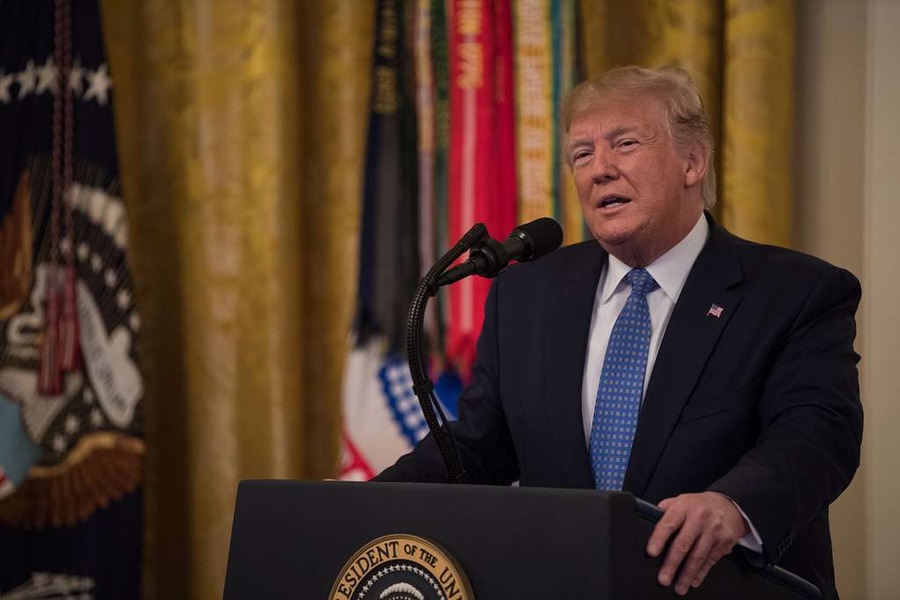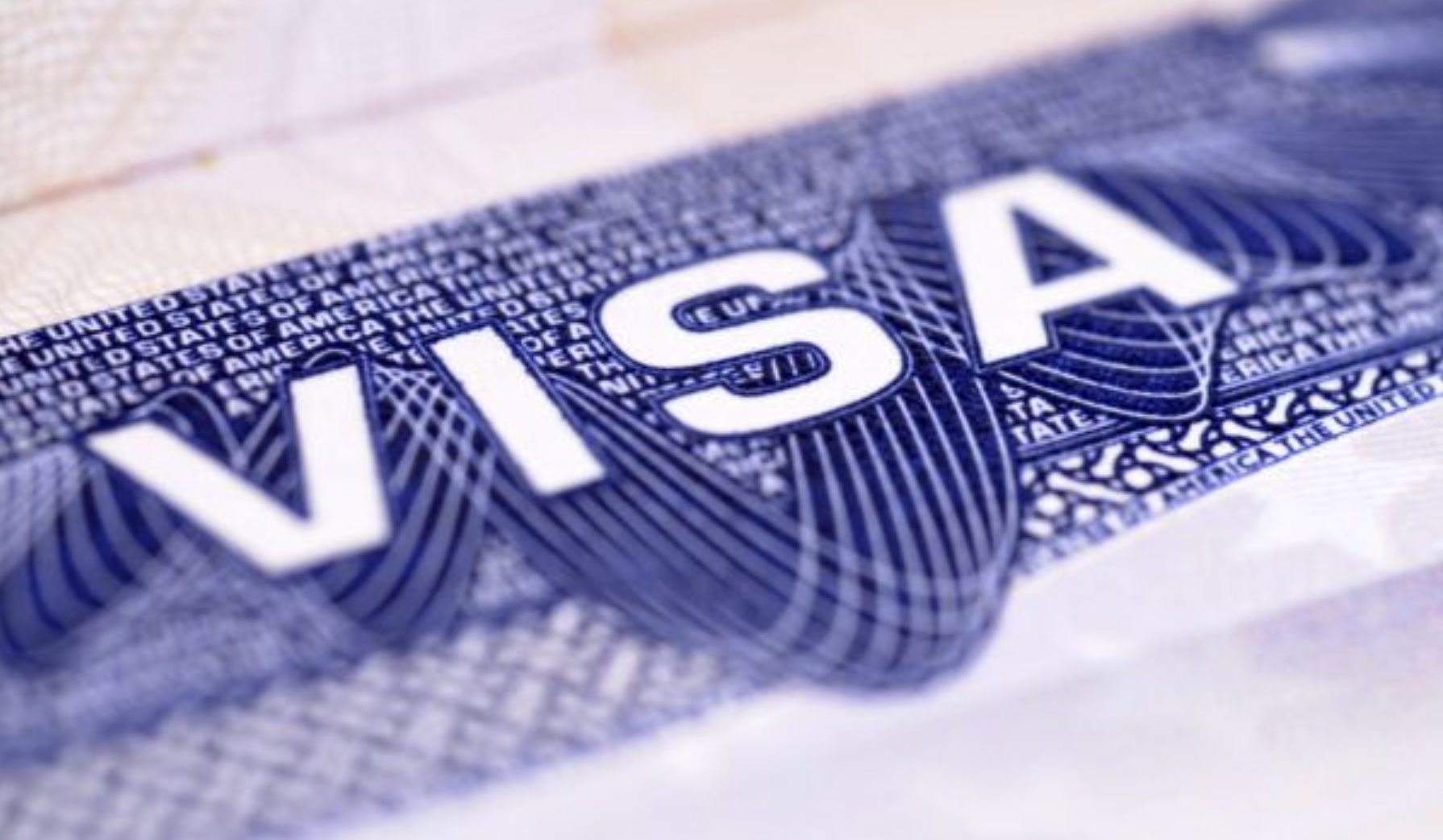The Law of Presidential Retribution

A little over a week ago, the New York Times added more detail to a familiar story: former President Trump’s push to have his Department of Justice investigate and prosecute personal and political enemies. For the most part, he was deterred; but he did manage to force an inquiry, eventually abandoned, that former Secretary of State John Kerry may have violated the Logan Act by maintaining contact with Iranian officials.
Trump continues to threaten that, if elected once more to the presidency, he will launch investigations and prosecutions of his political enemies, for the moment training his fire on political operatives, lawyers, and others he imagines may cheat him out of electoral victory. The unmistakable message of the Times report is that he should be taken at his word: As president, he showed that he meant business, even if he met with resistance from within his own administration, most notably from his White House counsel. And the Wall Street Journal reports that he and allies are planning to weaken or eliminate this internal resistance in a second term, including identifying “candidates for attorney general who share his expansive view of presidential authority and would be more willing to do the White House’s bidding.”
Trump will also choose a White House counsel team fit for the purpose of defending this “expansive view” of executive power. It seems highly unlikely that the lawyers appointed will advise him, as the first White House counsel, Don McGahn did, that a president cannot “initiate an investigation or prosecution yourself or circumvent an unwilling attorney general and order another official to initiate a politically motivated prosecution.” The Times cites a draft legal memo from McGahn and his associates to the former president that it describes as a “primer on presidential power—and the limits on it—when it comes to the justice system.” The White House lawyers then advised Trump that he had “considerable,” but only “indirect,” influence over department decision-making: A president can fire a recalcitrant attorney general, but short of that, limits kick in. In particular, the president lacks the authority “to circumvent the attorney general” in ordering an investigation and prosecution.
But the lawyers’ legal position in this account was not obviously correct at the time—and, in the wake of the Trump v. United States immunity decision, it is even more dubious now. A president who can fire an attorney general for declining to sign onto a program of retribution might consider the alternative or intermediate step of finding someone else at the Justice Department to do the job. A White House counsel carefully selected by Trump in a second term, committed to the mission and undaunted by norms against political interference in law enforcement, would have a reasonable legal basis for giving him the green light to do so.
As Jack Goldsmith and I wrote in “After Trump,” the president is “in charge” of the Justice Department, with full constitutional authority to “second guess the attorney general [and] to direct the attorney general to enforce the law a certain way.” The law has moved a long way away from the Supreme Court’s decision almost four decades ago in Morrison v. Olson. Upholding the constitutionality of the independent counsel statute, eight out of nine justices then agreed that presidents could be denied a “degree of control” over federal law enforcement and still satisfy their “take care” Article II obligations. So, in the years immediately after Morrison was decided, a constitutional law scholar still might express “hope” that the Court would continue to take the majority’s “pragmatic” approach, not the more doctrinal and “formalistic” one famously expressed in Justice Antonin Scalia’s dissent, and provide the attorney general with a measure of independence. The position the Court adopted in Morrison would make room for exceptions to the president’s control over the Justice Department. Scalia’s dissent allowed for no such exceptions, as “the President’s constitutionally assigned duties include complete control over investigation and prosecution of violations of the law” (emphasis in the original).
Scalia won out over the long term. By the time Trump took office in 2017, the Roberts Court had taken a harder line on separation of powers issues, and, in cases like Free Enterprise Fund, on the president’s control of the executive branch. And any doubt was extinguished by the Court earlier this year in Trump v. United States: The president has “conclusive and preclusive authority” over the federal law enforcement function. “Investigative and prosecutorial decisionmaking,” the Court declared, “is ‘the special province of the Executive Branch’ … and the Constitution vests the entirety of the executive power in the President.” And when citing a statement from Morrison that “investigation and prosecution of crimes is a quintessentially executive function,” the Court quoted from Scalia’s Morrison dissent.
What then would a hypothetical White House counsel advise a president in the future, whether Trump in a second term or another similarly motivated, whose attorney general resisted an order to initiate a questionably motivated investigation? The president could, of course, fire the attorney general, and indeed Trump fired two of his attorneys general (Acting Attorney General Sally Yates and Attorney General Jeff Sessions) and seemed ready enough to dismiss another (William Barr). But perhaps a president has lost confidence that the attorney general, even if eventually persuaded to fall in line, would take on the task with the required commitment. Or a firing would trigger too much of a furor, and the president would prefer to get underway without drawing immediate attention to his designs. The counsel could provide him with plausible options, one of which would be “circumventing” the attorney general.
This option might entail:
- Tasking a U.S. attorney of his choosing with launching the inquiry and reporting on developments and progress only to the White House counsel.
- Directing the White House counsel to relay those updates to the president and ensure that the president has the opportunity to comment or otherwise closely supervise the course of the investigation.
The counsel clearing this path for the initiation of a criminal inquiry can dismiss the relevance of the president’s motive. The Court in Trump v. United States was clear on this point: “[A]llegations that … requested investigations [are] ‘sham[s]’ or proposed for an improper purpose do not divest the president of exclusive authority over the investigative and prosecutorial functions of the Justice Department and its officials.” White House lawyers might now advise that, under the current state of the law, the president’s reasons for going around the attorney general just don’t matter.
Of course, the attorney general could complain, citing his or her statutory authority to conduct and supervise Justice Department functions, all of which are vested by law in the office. The White House counsel would reply that the statute cannot override the president’s exercise of clear constitutional authority. While the attorney general’s own authority applies generally within the department and, in matters such as opinions and advice on legal matters, across the executive branch, the president remains in charge.
The attorney general could also resign, with or without public disclosure of the reasons, and Congress could mobilize to press for an explanation and commence an oversight process. Perhaps, too, the congressional response could be the first act in an impeachment process—depending on the party in control of the House of Representatives.
Even under congressional pressure, the investigation could continue, as we might expect that it would under the close supervision of a determined president. In the case of Donald Trump, he has made no secret of his belief that his enemies should face investigation and prosecution. He has shared his views and intentions at rallies and on social media. As the Times story relates, the Justice Department in the Kerry case appears to have moved against the former secretary in direct response to Trump tweets. Trump’s concern has never been that any would know of his thirst for legal retribution; it was that he could not get his government to quench it.
The Times recounts the White House lawyers’ efforts to sensitize Trump to the nonlegal reasons these plans for retribution were unwise. This part of their presentation seems to have been a bit of a mishmash of norm-based claims and political warnings. The appeal to norms seems to have been gingerly couched: The lawyers acknowledged the “strong constitutional norms of nonpolitical law enforcement” but suggested that not necessarily everyone would share the same view of their persuasiveness. The Times quotes from the draft legal memo:
However good the president’s intentions, there are those who would view any political involvement in a prosecution or political investigation as violating the constitutional norm and the president’s constitutional obligations. It may prove difficult to explain in an easy, understandable way why intervening in a particular proceeding was not necessary and would not compromise its fairness.
The message to Trump seems to have been: You may have your good reasons, but “there are those” who might still object and you can expect to have some difficulty explaining it to them.
This is not the most robust articulation of the norms, but in the circumstances, with Trump, it may have been the best possible approach to client management. To whatever extent, if at all, a future White House counsel might bring norms into the discussion, they could make a difference only if they hit home with a receptive audience. A president who cares less about norms than he does about striking out at his enemies, or not at all, might be interested only in the answer to the question: Fine, but I want to do it, and so if the attorney generally persists in fighting me on this or stalling, I am asking you, as legal counsel, can I do it anyway?
The White House counsel in this hypothetical or not-so-hypothetical future administration could readily answer in the affirmative. She could advise that the president need not limit himself to indirect means of achieving this end, by, say, resorting to social media to “influence” Justice Department behavior. He can order others to make it happen, and if the ones so directed also assign scant or any weight to the relevant norms and otherwise feel comfortable staying at their posts, they will do as they are told.
Of course, how all this might transpire in particular circumstances is complicated. In a case that may present risks of liability, like the Jan. 6-related prosecutions, a subordinate who has only scorn for norms, but lacks the assurance of immunity that the president can count on under Trump, may still balk at signing onto a retribution program (unless he secures and trusts in the promise of a pardon). And a vengeful president may more easily abuse the legal process by dragging enemies through an investigation than by clearing the hurdles presented in a prosecution by judges and juries. But the memo from counsel laying out the options and advising on limits may—most probably will—read very differently if there is a next time.


.png?sfvrsn=48e6afb0_5)


